
by logisticsplus | Oct 27, 2015 | News
 Incoterms® refer to a series of rules that define the responsibilities of sellers and buyers (business-to-business) when they purchase and ship goods internationally. These could include various costs and performance tasks which all businesses involved agree to handle.
Incoterms® refer to a series of rules that define the responsibilities of sellers and buyers (business-to-business) when they purchase and ship goods internationally. These could include various costs and performance tasks which all businesses involved agree to handle.
Background
Incoterms were originally designed by the International Chamber of Commerce, in order to establish a more universal terminology across different members of the international trade industry. They were first introduced in 1936, and are revised as needed. Generally, their life span averages about 10 years. The 2010 Incoterm rules consist of 11 different terms that aid users in dealing with different situations that involve the movement of goods.
Significance
Using Incoterm rules in agreements ensures that both parties are on the same page, thus reducing the possibility of misunderstanding and increasing the likelihood of fulfillment. Incoterm rules are a very significant part of purchase-sales contracts, and it is therefore very essential that both the seller and buyer understand how to use them properly.
General Guidelines
- All Incoterms rules must include the exact geographical place.
- Incoterms must be cited in purchase-sales contracts.
- Incoterm rules are always in English regardless of the contract language.
- Each Incoterm rule has a three letter abbreviation.
- Each Incoterm rule states the location where seller risk (referred to as “delivery”) for the condition agreed upon ends.
- All Incoterm rules require the packaging of goods for transport by the seller.
2010 Incoterm Rules
- Ex Works (EXW): refers to the most basic shipment arrangement, where the seller is only obliged to ensure the packaging and availability of a good and notify the buyer.
- The F-Group (FOB, FAS, FCA): overall, terms in this category indicate that the seller is only responsible for delivering the goods to a carrier determined by the buyer.
- The C- Group (CIP, CPT, CIF, CFR): terms in this category indicate that the seller is obliged to contact and pay for carriage, but is not responsible for cost or risk once the goods are shipped.
- The D- Group (DAF, DES, DEQ, DDU, DDP): terms in this category indicate that the seller is responsible for all costs associated with bringing goods to a certain location determined by the buyer.
Please check out our useful online Incoterms Guide, or contact us for more information. If you have an international shipment ready to go, click the button below to request a free, no-obligation transportation quote.

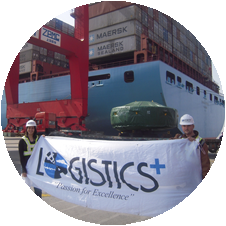
by logisticsplus | Oct 13, 2015 | News
 Logistics Plus is your global headquarters for freight forwarding and project cargo expertise! Other companies may claim to have expertise handling project cargo, but we’ll put our 20 years of project cargo experience up against anyone. Project cargo, also called project forwarding or project logistics is a specialized field of transportation and logistics that requires specific expertise, knowledge, and resources. Project cargo can often be large, unique, oversize, heavy-lift, or breakbulk shipments. Project cargo can also be managing a large volume of freight shipments within a specified time frame or by specific delivery date.
Logistics Plus is your global headquarters for freight forwarding and project cargo expertise! Other companies may claim to have expertise handling project cargo, but we’ll put our 20 years of project cargo experience up against anyone. Project cargo, also called project forwarding or project logistics is a specialized field of transportation and logistics that requires specific expertise, knowledge, and resources. Project cargo can often be large, unique, oversize, heavy-lift, or breakbulk shipments. Project cargo can also be managing a large volume of freight shipments within a specified time frame or by specific delivery date.
Logistics Plus has extensive project cargo expertise handling, lifting, and transporting the most difficult of cargo across many industries. We’ve managed projects involving locomotives, windmills, satellites, solar panels, gas pipes, boilers, generators, LNG tanks, pumps, helicopters, machinery, tractors, ship blocks, aviation components, and more. And we’ve done so in countries all around the world, including the United States, Canada, Mexico, Brazil, Chile, Belgium, Germany, Finland, China, India, Indonesia, Turkey, Saudi Arabia, and Libya, to name just a few. The following photo gallery provides some great examples of the many cargo projects our team has handled over the past couple of years.
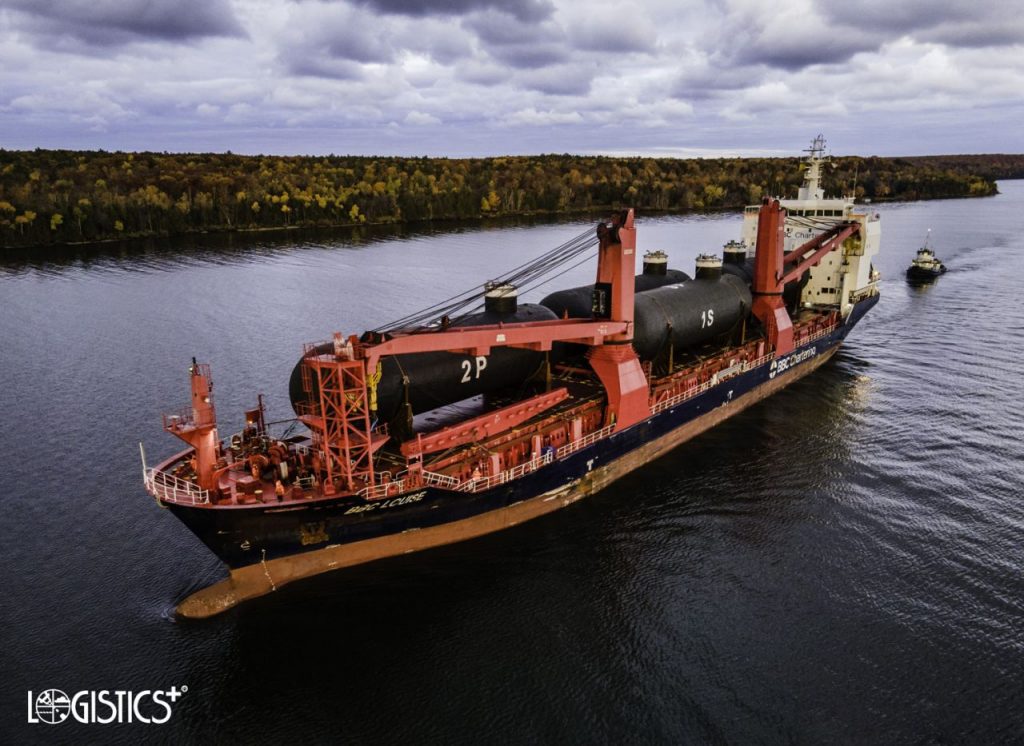
When you work with Logistics Plus, you can enjoy the peace-of-mind knowing that you’re working with an experienced project cargo logistics company that has a reputation for managing projects from start until finish – and everything in between. Our project cargo services include all of the following options:
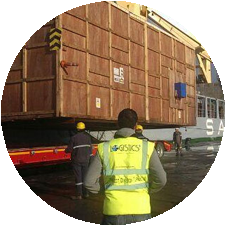 Planning and scheduling
Planning and scheduling- Crating and packaging
- Breakbulk preparation
- Specialized equipment for loading and unloading
- On-site management and inspection
- Proactive tracking and monitoring
- Air, ocean, ground, and rail transport services
- Vendor management and logistics consultation
- Customs brokerage and global trade compliance
The secrets to our project cargo success are as follows:
- Talented, experienced, and caring logistics professionals
- Our global network of people, locations, and resources
- Cargo visibility and responsiveness to potential problems
- Award-winning service and market-competitive rates
- World-class technology and transportation management tools
If you’re interested in learning more, click the image below to visit us online to see how we manage project cargo or to request a no-obligation project cargo quotation. You can also contact our Project Cargo Division directly by calling 1.866.564.7587 option 5 or by sending an email to projectcargo@logisticsplus.com.
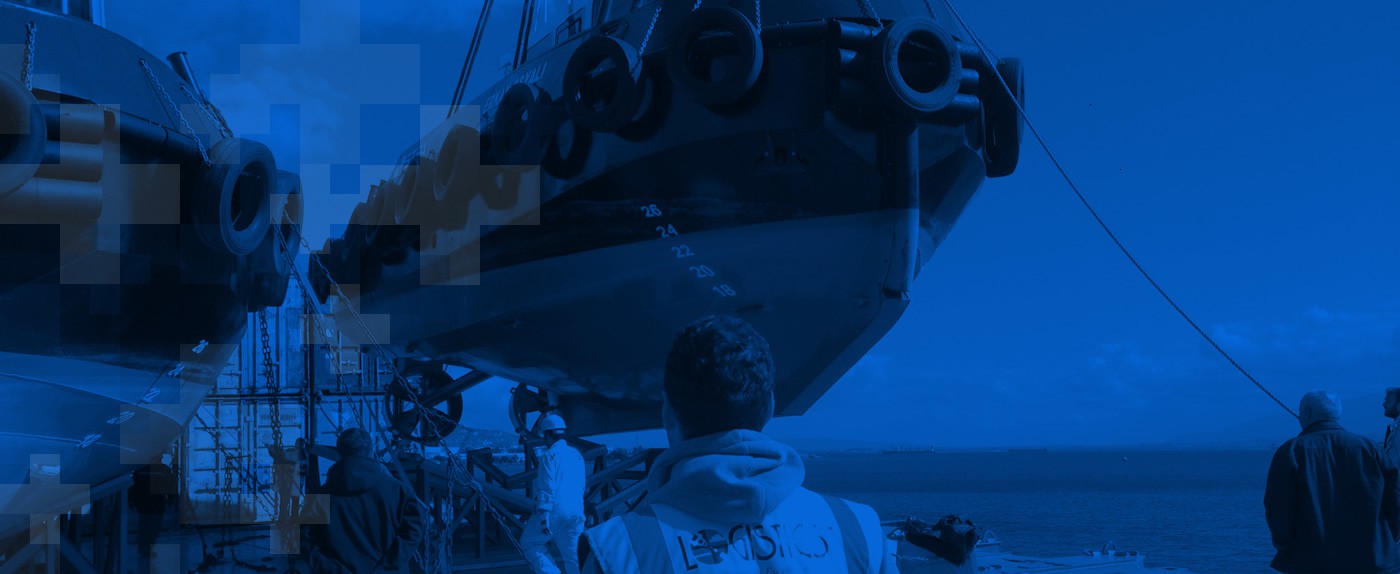
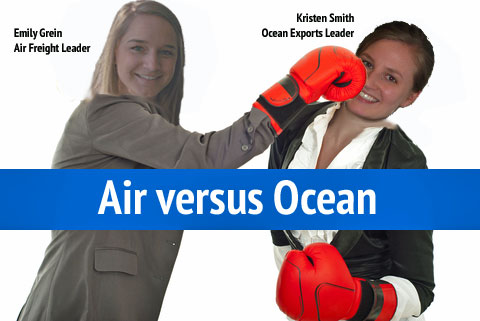
by logisticsplus | Aug 21, 2015 | News
 Logistics Plus (LP) provides logistics services within and across all national borders and using all modes of transportation. Air freight forwarding and ocean freight forwarding services come into play more often than not on international shipments. On the LP International team, Emily Grein is our lead air freight specialist and Kristen Smith is our lead ocean freight specialist. We asked these two to square-off in order to better understanding the pros and cons of shipping air freight versus ocean freight. Although Emily, Kristen, and their teams are intimately immersed in either air or ocean transportation, their top priority is always to ensure the right mode is selected for the needs of each customer (which, in some cases, can include both ocean and air).
Logistics Plus (LP) provides logistics services within and across all national borders and using all modes of transportation. Air freight forwarding and ocean freight forwarding services come into play more often than not on international shipments. On the LP International team, Emily Grein is our lead air freight specialist and Kristen Smith is our lead ocean freight specialist. We asked these two to square-off in order to better understanding the pros and cons of shipping air freight versus ocean freight. Although Emily, Kristen, and their teams are intimately immersed in either air or ocean transportation, their top priority is always to ensure the right mode is selected for the needs of each customer (which, in some cases, can include both ocean and air).
When considering the choice between air and ocean freight forwarding, the top three factors to consider are generally reliability, speed, and cost. Whether you ship via air or via ocean, each requires some level of expertise to understand how these three factors will be impacted; and each has a different set of rules, regulations, and best-practices practices.
RELIABILITY
Airfreight is more convenient and faster even though flights can get delayed by weather and other circumstances. There are usually daily air flights back and forth and between major cities around the world. Ocean carrier sailings, on the other hand, are generally weekly or every other week depending upon the trade lane. This means that if a cut-off time is missed at a seaport, there will be a longer delay. There is also the possibility of exposure to weather conditions and goods being damaged due to the wait at the ports of transfer. Lastly, the longer, more stringent schedule of ocean service may not always line up with business expectations.
SPEED
It should be no surprise that shipping by air is usually much faster than by ocean. Air shipments can take up to a few days while shipping by ocean can take anywhere from a few weeks to months to arrive; however, more efficient routes are being created and ships are getting faster, meaning shipments crossing the ocean are taking less time.
COST
For many businesses, cost can be a very crucial factor which can influence the decision to ship by air or ocean freight. Shipping your items by air is more expensive than ocean freight. Expect to pay between 5-6 times more to ship by air versus ocean transportation. With both air and ocean, costs are directly related to the cargo weight, dimensions, value, and distance being shipped. Generally, larger and heavier shipments are often cheaper to ship by ocean, while smaller more valuable shipments are better to ship by air.
The table below shows a few items to consider when deciding whether to ship via air or ocean:

No matter which mode you ship, customs regulations, duties, and fees will come into play on all international imports or exports. Working with a reliable freight forwarder that has in-house customs broker solutions will go a long way towards ensuring your shipment receives expedited customs clearance and that your import/export fees are minimized.
If you need help with air freight forwarding, ocean freight forwarding, imports/exports, or global trade compliance, work with Logistics Plus and enjoy the benefits of having an award-winning supply chain partner on your side.

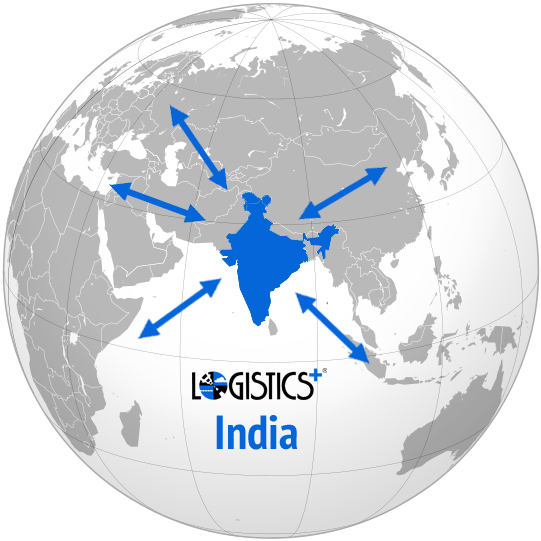
by logisticsplus | Jul 24, 2015 | News
 The United States International Trade Commission just released its updated “The Year in Trade 2014” report. The report, which covers global trade trends and activities, indicated that the value of U.S.-India two-way merchandise trade has increased 5% since 2013. In 2014, merchandise exports to India were valued at $21.6 billion. Leading U.S. exports to India included diamonds, aircraft and parts, gold, and coal. 2014 imports from India were valued at $45.2 billion, with non-industrial diamonds, certain medicaments, petroleum-related products, food, apparel, chemicals, and steel products all leading the way. The report went on to say that the U.S. and India continue an ongoing dialogue to improve trade relations going forward.
The United States International Trade Commission just released its updated “The Year in Trade 2014” report. The report, which covers global trade trends and activities, indicated that the value of U.S.-India two-way merchandise trade has increased 5% since 2013. In 2014, merchandise exports to India were valued at $21.6 billion. Leading U.S. exports to India included diamonds, aircraft and parts, gold, and coal. 2014 imports from India were valued at $45.2 billion, with non-industrial diamonds, certain medicaments, petroleum-related products, food, apparel, chemicals, and steel products all leading the way. The report went on to say that the U.S. and India continue an ongoing dialogue to improve trade relations going forward.
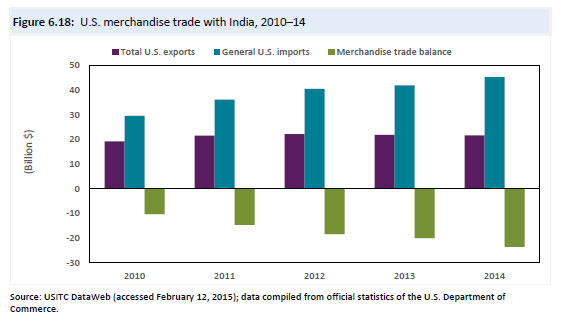
While these numbers may seem impressive (India is the 11th largest foreign trading partner with the U.S.), some economists forecast that these numbers could double in the next five years. Contributing to this growing trend is the fact that India is the world’s largest democracy and the second-most populous country in the world. The country has a burgeoning urban middle class and has made great strides in fields such as information technology. Its large, skilled workforce makes it a popular choice for international companies seeking to outsource work.
If your company imports or exports merchandise from India, you should consider working with Logistics Plus. In the U.S. we have more than a dozen locations around the country that can help you with your transportation and logistics needs, and our Customs Broker Solutions staff can also help you clear customs for imports at any port in the United States. Additionally, we have six offices in India located in the cities of New Delhi, Bangalore, Chennai, Jalandhar, and Mumbai.
If you’re located in the U.S. and interested in learning more, please contact us or use our international quick quote form if you have an upcoming shipment. You can also call 1.866.564.7587 or email quotes@logisticsplus.com with any questions. If you’re located in India, you can complete our India logistics solutions request form or use our international quick quote form if you have a shipment. You can also call our New Delhi main office at +91.124.474.9200 or email sundreysh.sarup@logisticsplus.com with specific questions.
As always, you can find any of our worldwide employees in our online global directory.

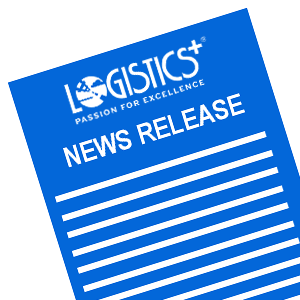
by Scott Frederick | Jul 17, 2015 | News
FOR IMMEDIATE RELEASE
Logistics Plus Helps Western Shelter Systems Deliver Relief to Nepal
42 Tons of Humanitarian Aid Products Air Freighted from Oregon to Nepal
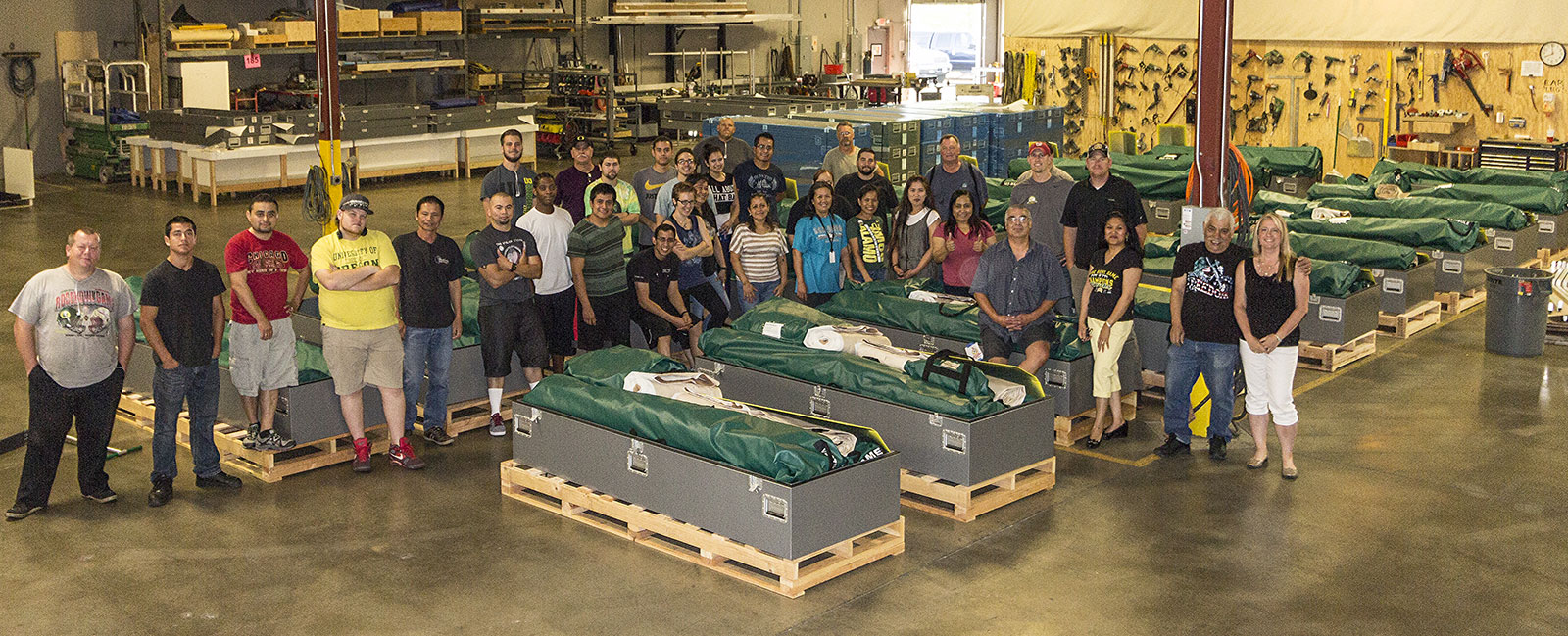
ERIE, PENNSYLVANIA, July 17, 2015 – Logistics Plus Inc., a worldwide provider of transportation, logistics and supply chain solutions, helped successfully coordinate 42 tons of humanitarian aid products from Oregon to Nepal. Working with its customer, Western Shelter Systems, the two-part shipment was picked up in Eugene, Oregon in early July and cleared customs at the American Embassy in Kathmandu, Nepal on July 10, providing much needed relief shelters and supplies to the area.
Nepal was rocked by succession earthquakes in April and May, creating a humanitarian crisis. The first earthquake, on April 25, killed over 8,000 people, injured over 18,000, and destroyed hundreds of thousands of homes. A second major earthquake struck on May 12. The second quake toppled already weakened buildings, triggered a series of landslides further hampering relief efforts.
“Logistics Plus was flawless working with us on this humanitarian aid shipment,” said Mike Scala, President and CEO for Western Shelter Systems. “Email and phone communication were extremely abundant on this sensitive shipment, and we were guided through every detail including pallet configuration to dial in the best and fastest transport. Once the shipment cleared customs in Nepal, our people there were able to start working with the USDOJ in order to deploy this important aid.”
About Western Shelter Systems
Since 1992, Western Shelter Systems has been the standard, exclusive supplier of re-deployable shelters for all U.S. Federal government FEMA emergency responder teams, state and county governments, and municipal fire and police jurisdictions; as well as forest service, military, hospital, and industrial organizations. For more information, visit www.westernshelter.com.
About Logistics Plus
Logistics Plus Inc. provides freight transportation, warehousing, global logistics, and supply chain management solutions through a worldwide network of talented and caring professionals. Founded in Erie, PA by local entrepreneur Jim Berlin nearly 20 years ago, Logistics Plus has been repeatedly recognized as one of the fastest-growing transportation and logistics companies in the country. With a strong passion for excellence, its 350+ employees put the “Plus” in logistics by doing the big things properly, and the countless little things, that together ensure complete customer satisfaction and success.
The Logistics Plus® network includes offices located in Erie, PA; Fresno, CA; Los Angeles, CA; San Francisco, CA; Evansville, IN; Detroit, MI; Kansas City, MO; Lexington, NC; Buffalo, NY; Cleveland, OH; Charleston, SC; Greenville, SC; Nashville, TN; Dallas, TX; Fort Worth, TX; Laredo, TX; Houston, TX; Australia; Bahrain; Belgium; Canada; Chile; China; Colombia; Egypt; France; Germany; India; Indonesia; Kazakhstan; Libya; Mexico; Poland; Saudi Arabia; Turkey; United Kingdom; and additional agents around the world. For more information, visit www.logisticsplus.com or follow @LogisticsPlus on Twitter.
Media Contact:
Scott G. Frederick
Vice President, Marketing
Logistics Plus Inc.
(814) 240-6881
scott.frederick@logisticsplus.com


 Incoterms® refer to a series of rules that define the responsibilities of sellers and buyers (business-to-business) when they purchase and ship goods internationally. These could include various costs and performance tasks which all businesses involved agree to handle.
Incoterms® refer to a series of rules that define the responsibilities of sellers and buyers (business-to-business) when they purchase and ship goods internationally. These could include various costs and performance tasks which all businesses involved agree to handle.



 Planning and scheduling
Planning and scheduling






